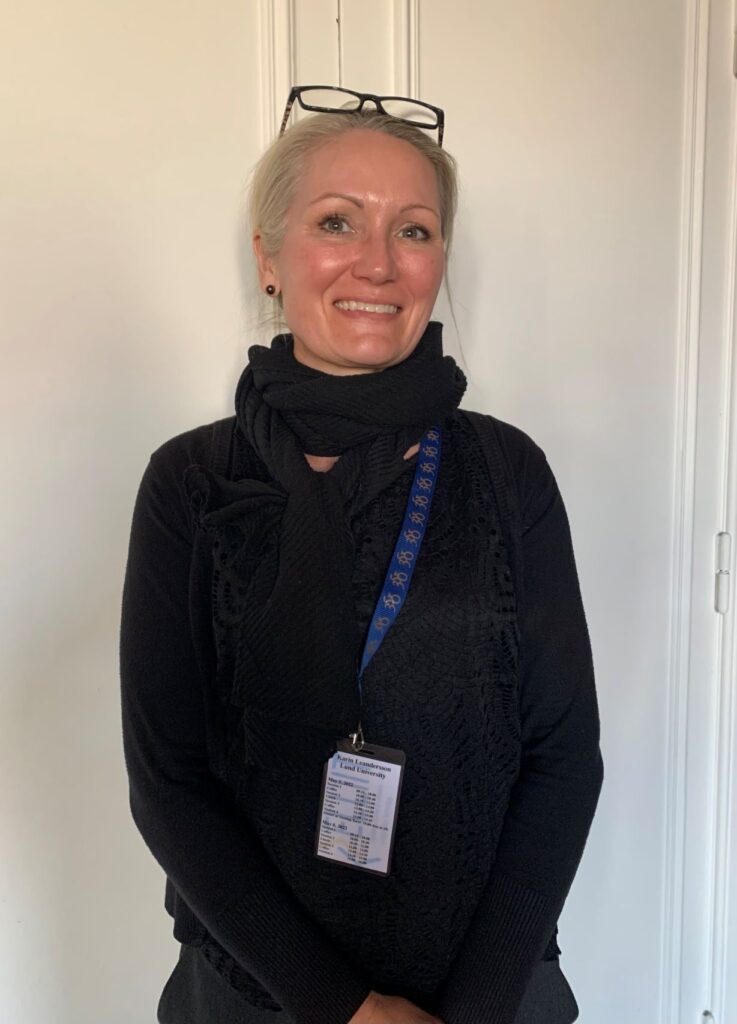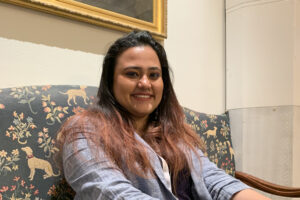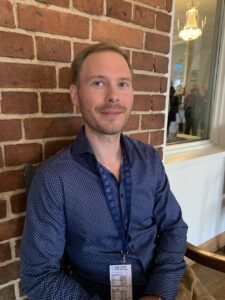Karin Leandersson
Professor in Human Tumor Immunology at Lund University Cancer Centre, Sweden
Invited speaker and participant in the workshop

Karin Leandersson’s work focuses on understanding the immune system’s response to cancer cells. From recent research, it has become clear that established tumors produce soluble factors that sculpt the immune system towards an anti-inflammatory, or tolerogenic, faith. Understanding why this happens may allow researchers to activate the immune system toward cancer cells, thus preventing the spread of cancer cells in the body and ultimately increasing patients’ survival.
“The Elliit workshop has allowed for a unique combination of researchers with different interests and competencies to meet for three days, exchanging knowledge and ideas in an agreeable environment. It gave me many new ideas, more than I believed was possible in such a short amount of time. You learn so much when you meet people from other fields of research. We should definitely talk much more to each other, just like we have done here. The workshop has also reminded me of the metaphor ‘Think outside of the box’. Everyone says it, but when you actually do it, things happen! I got so many relevant and apprehensive questions during my presentation. I was impressed.
My conclusion is that we need to meet much more often across borders. It is precious. Since the Elliit workshop on cancer immunotherapy is a one-time event, I have already talked to my colleagues about pursuing the workshop ourselves. I hope we can realize it. We have to.”
Contact
karin.leandersson@med.lu.se
Read more about Karin Leandersson and her research
https://portal.research.lu.se/sv/persons/karin-leandersson
https://portal.research.lu.se/sv/organisations/cancer-immunology-malm%C3%B6
Lavanya Lokhande
PhD student at the Department of Immunotechnology, Lund University, Sweden
Participant in the first part of the focus period and the workshop

Lavanya Lokhande uses omics-based technologies to explore Mantle cell lymphoma, a rare and aggressive cancer subtype. Her research involves developing so-called bioinformatic pipelines based on machine learning algorithms to identify patterns in datasets. The goal is to develop better patient risk stratification models and prognostic biomarker signatures that can be used to predict disease progression.
“This was a unique opportunity for me to connect to researchers from different fields and build a network that is not limited to Lund University. I made many new friends, and it was amazing to meet all of these talented people. I have learned so many new things that I hope I can explore in the future, and I developed a great deal as a scientist during these weeks. My thoughts were validated, and at the same time, I got many new ideas. I know now how I can move forward.
I have attended numerous conferences, seminars, and workshops. They are usually huge, with a lot of information and many parallel sessions. It is sometimes too much for me – it is hard to know what to take in. Here, you have a diverse international crowd but a completely different setup with much fewer participants and a lot of time between lectures allowing you to process the information and talk to people. I liked that, and it gives a lot of scope for future collaborations.”
Contact:
lavanya.lokhande@immun.lth.se
Read more about Lavanya Lokhande and her research:
https://portal.research.lu.se/en/persons/lavanya-lokhande
Jesper Sundell
Postdoc at the Department of Automatic Control, Lund University, Sweden
Participant in the workshop and the second part of the focus period

Jesper Sundell works within the field of precision medicine. During his PhD, which he recently finished, he developed a method for measuring levels of pharmaceuticals and their metabolites in patients suffering from tuberculosis. He also worked on a mathematical model to describe the pharmacokinetics in patients coinfected by tuberculosis and HIV to optimize the treatment of individual patients and reduce the risk of adverse side effects.
“I started my postdoc at Lund University only three weeks ago. I have never attended a similar event before. It is an exciting concept and one that I like very much. It is inspiring to meet people from many different backgrounds and learn from each other. I genuinely believe that the future is interdisciplinary, and many researchers here have talked about the need for interaction to solve our modern medical problems. I particularly enjoyed some lectures about machine learning methods and how I can apply them in my research. I realized there are a lot of similarities between infectious diseases, where I have my background, and cancer, and I started thinking about how it can be translated into the application of mathematical models.
There have been a lot of highlights already, and I am looking forward to participating in the second part of the focus period. I enter with an open mind, intending to build strong networks with the other participants and hopefully create possibilities for future collaborations.”
Contact:
jesper.sundell@control.lth.se
Read more about Jesper Sundell’s previous research:
https://gupea.ub.gu.se/handle/2077/69298
